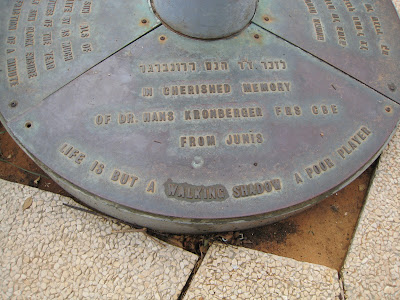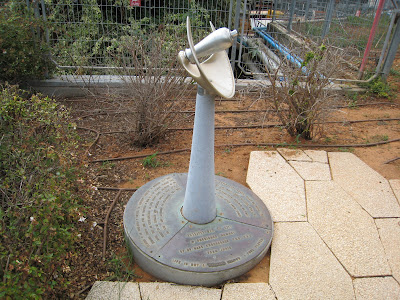Wendy Wisner‘s poems this week at No Tell Motel.
I’ve spent the bulk of my waking hours this week reading about domestic violence. Browsing Wisner’s recent blog entries was a nice moment-thread of counterpoint.
Wendy Wisner‘s poems this week at No Tell Motel.
I’ve spent the bulk of my waking hours this week reading about domestic violence. Browsing Wisner’s recent blog entries was a nice moment-thread of counterpoint.
My favorite poem of hers: Wishes for Sons
Three things:
(1) A surprise package arrived in today’s mail, from my friend Marilyn. Slicing open the bubble-padded envelope and peeling away a thick layer of white tissue paper revealed yet more layers of another, gift-wrap grade tissue paper, tied with a red ribbon and sealed with a store sticker, accompanied by a crisp white envelope with my name in Marilyn’s familiar cursive. Undoing the ribbon and the seal revealed a copy of Mary Oliver’s Owls and Other Fantasies; opening the envelope revealed a handmade card, itself constructed out of both layers present (red and pink paper upon the cardstock) and absent (negative spaces created by wax or some other resist).
I’m looking forward to reading the book some other afternoon. Today I’m just taking time to savor both the surprise and its layers. (Mind, I neither expect nor require it of the presents I receive or give; it simply happens to be a type of pleasure I enjoy lingering with when inclination, opportunity, and means coincide.)
(2) Earlier this week, I was sorting through some snapshots from my trip to Israel last fall. I think I caught sight of this memorial inscription inside the Clore Garden of Science; I don’t recall if the item was a water fountain, sundial, or something else entirely. This is why I ought to caption my photos right away, not half a year later…
 |
| From photoblogging |
 |
| From photoblogging |
(3) I don’t know when (or even if) I’ll get to the book itself, but Susan Cheever quoted several intriguing passages from Mary Karr’s Lit when she reviewed it last November:
Humming through me like a third rail was poetry […] the myth that if I could shuffle the right words into the right order, I could get my story straight. . . .
~ ~ ~
Such a small, pure object a poem could be, made of nothing but air, a tiny string of letters, maybe small enough to fit in the palm of your hand. But it could blow everybody’s head off.
From Arthur Davison Ficke’s Chats on Japanese Prints (1915):
Much is said unwisely about the elevating and educative power of art. The man in the street has come to believe that the elevating force resides in the theme which a work of art presents–that a picture of Galahad riding for the Grail is a lofty thing, and that a picture of the wings of the theatre during a ballet is a base one. Hence has arisen that unspeakably childish modern school of middle-class painters whose “pictures with a story”–generally a sentimental or edifying story–are the terror of the art-lover. After them, no wonder that even the Cubists came as a relief.
As every artist knows, the elevating power that resides in the mere subject of a picture has at best no more force than a moral maxim; the mind may assent to it, but the heart is unmoved. The same may be said in the case of a poem. The glory of poetry is not that it furnishes elevated sentiments in rhyme for public speakers to quote, but that it embodies music and thought combined in so fitly proportioned and expressive a structure that the reader carries away with him a certain acquaintance with perfection and a lasting desire for ideal beauty in everything.
Thus it is only through its power to cultivate the spectator’s sense of form that art may be called elevating. Close familiarity with the productions of great artists gradually develops in the spectator an understanding of proportion, harmony, and conscious design, evoking in him the ability to perceive and even create order and freedom.
I’ve just ordered Pat Schneider’s Another River, after reading her poems “Sound of the Night Train” and “The Patience of Ordinary Things.” The latter was posted at Carla Zilbersmith‘s blog, which I stumbled upon via Alison Luterman‘s website, which I visited earlier tonight in part because I had California on my mind.
This weekend’s rereadings included Ronald Wallace’s answer to Donald Hall. The last line totally doesn’t work for me, but it’s clearly a darling to Wallace, seeing that it titles his explication page. *shrug* That said, I bought The Uses of Adversity years ago because of his sonnets “The Student Theme” (“The adjectives all ganged up on the nouns…”) and “The Bad Sonnet” (“It stayed up late, refused to go to bed…”); this time around, what made me sit up were “God’s Handiwork” (“We like to vilify our enemies / with metaphor’s elaborate construc-/ tions. Viruses are hoodlums run amok…”) and “Statutes of Limitations,” the latter dedicated to “C.L.L., 1946-1992”:
…Oh, why did we take
the trooper’s word that what we did was wrong
and slink home embarrassed and estranged
and lose the simple we in love’s sweet song,
and see the harm in harmony? Time’s rearranged
us. I am here, and you are gone. Because,
because. Oh, there are laws. And there are laws.
Wow.
I spent a couple hours this past weekend with Donald Hall’s This Old Life (1996) and was underwhelmed. I’d read “The Night of the Day” a couple times before, over the years, and caught my breath both at its closing lines (in part because the line “older / than my dark-haired father ever got to be” leapt out at me this time, though it won’t be true in my case for another two decades) and back-of-the-book postscript (in which two more deaths are mentioned) … but the rest of the book, I just didn’t connect with, poetically or anecdotally, except for an acknowledgment of midlife fucked-up-ness (Duthie: “look, self, Donald Hall was an alcoholic mess when he was forty, and he got past it, and you don’t have it anywhere near that dire”) and a flare of momentary self-pity (Hall, on losing the 1993 National Book Award to A.R. Ammons: “I went to sleep easily, / mildly let down, and woke / at three-thirty in a murderous rage.”) In his notes to “The Old Life,” Hall snarks about autobiographical “McPoems” – “prosy little anecdotes…perfect in their narcissism.” My difficulty is that, the rave reviews on the cover notwithstanding, and the sorrows delineated in detail, “This Old Life” comes across to me as an extended collection of prosy little narcissistic anecdotes.
Jack Gilbert’s The Great Fires isn’t making itself matter to me, either. Although the fact that he and Hall were both writing about being widowed did lead me to revisit Milton’s sonnet about HIS dead wife…which, in all honesty, I find not especially memorable until the last two lines. But oh my God, those last two lines.
So what have I read lately that has held up in rereading? Parts of Camille Dungy‘s first book (the second one’s due out next year and already on my shopping list). R. T. Smith’s Shades. Jack Myers’s Cirrus. Milosz’s Encounter. And (especially appreciated after a morning reading aloud about Armageddon) Milosz’s Song on the End of the World.
It’s my last night in Jerusalem, and both my physical and mental spaces are crowded with Things I Need To Think More About, never mind the perennially overstuffed closet of Things I Need To Put Into Letters (both alphabetic and correspondential) Sooner Rather Than Later.
But in the meantime, I can at least clear a couple bookmark-threads from my list by mentioning them here…
I don’t know that I agree with Thomas Lynch’s claim, but I did enjoy “Refusing at Fifty-Two to Write Sonnets” nonetheless.
So, my home phone/internet’s been out of commission since Friday, and there was an airline clusterfuck on Sunday that ended up costing me two cab fares, 50% of my too-late-to-cancel guest-house reservation for yesterday night, and several hours of my life that I don’t get back. Grr, grr, grr.
That said, I was glad to end up with more time to herd a few more things into order… including completing the “Wishes At Time of Death” form my pastor keeps on file, which includes specifying any readings desired. For what it’s worth, I want Raymond Carver’s “Late Fragment” and Jane Hirshfield’s “The Heart’s Counting Knows Only One” either in the program or read aloud. I’m betting there will be an Emily Dickinson in there as well – though how I will collect if the reader in question chooses as expected, I haven’t quite worked out. (Maybe a dram of Edradour poured over my ashes? But that would be a waste of good whisky…)
I also treated myself to a glass of Canton ginger liqueur , a long hot soak in the tub, and some visiting with my poetry books. Of particular note:
…real love, I’ve decided, is when
you see your lover at their most
awkward, wretched moments
and still want to fuck them later.
There are a couple upcoming deadlines I’ve been working toward, and I’m hopeful about meeting them, albeit not at the expense of time with friends and improving my Hebrew and other being-here-in-the-present priorities. That said, there’s a part of my brain that’s ruthless about testing words with and against each other until they fit just so, and when it’s in gear, there’s no getting any sleep until it’s gotten its due. (In other words, this is why I spent a good chunk of early Monday morning working on two new cinquains instead of sinking back into sleep. At this point, it shouldn’t surprise that me that putting together forty-four syllables = as complicated as shaping water. (Think of fountains. Think of ice. Think of how some faucets gurgle and some whine like tired teakettles. Some poems are downpours that clog up gutters and destroy posters; others strike as lightly as a flutter of drops on a lemon tree. And I seem to be writing a poem in spite of myself, so I’d best wrap this up and pour the rest of my words into something eventually submittable (it’s 1:15 am here, and where I’m staying, the only creatures still awake besides me are a cat in heat and the occasional palmetto bug scuttling across the stones).
Marymary’s sonnet (which you should read, the better to admire the (dis)appearance both of “ocean’s negligee” and “bathymetry”) drew my eyes to The Flea, where there is also Ann Drysdale’s “Said Yeats’ Bones to Hardy’s Heart,” which delights me both in rhythm and wit.